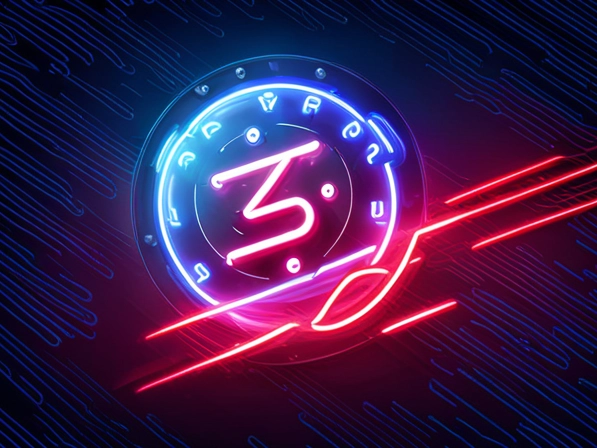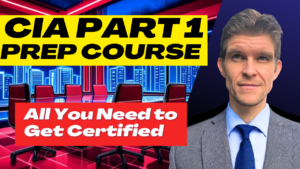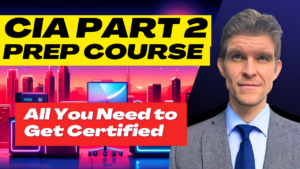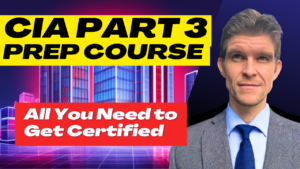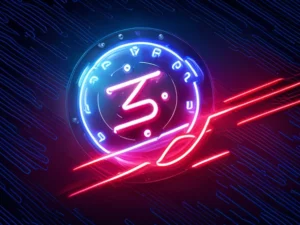Getting a Certified Internal Auditor (CIA) certificate is about dedicating yourself, getting ready, and really knowing about internal auditing. The CIA certificate is known worldwide and gives you an edge. The CIA exam has three parts that look at your skills in internal auditing.
Now, we’ll check out the first part of the CIA exam – “Essentials of Internal Auditing.” This part checks how well you follow the IIA’s rules for doing internal audits.
Understanding the CIA Exam Structure
The CIA exam has three parts, each looking at different parts of internal auditing. These parts are meant to fully see how much you know about the field. The three parts are:
- Essentials of Internal Auditing (Part 1): This part sees if you understand the International Professional Practices Framework (IPPF) made by the IIA. It checks if you know the main rules of internal auditing, like being independent, being fair, and being careful.
- Practice of Internal Auditing (Part 2): Part 2 tests what you know about using the rules and ways of doing internal audits. It looks at how you plan audits, do them, tell others the results, and keep track of progress.
- Business Knowledge for Internal Auditing (Part 3): The last part checks if you know important business things that matter for internal auditing. This includes money management, tech, and understanding how businesses work.
Getting into the CIA Exam Topics and Thinking Levels
The CIA exam makes sure you’re really good at many important things in internal auditing. It looks at stuff like the International Professional Practices Framework (IPPF), doing audits, checking risks and controls, how organizations work, and different parts of business, tech, and managing. Let’s look deeper at these areas.
- International Professional Practices Framework (IPPF) and Audits
To do great in the CIA exam, you really need to understand The IIA’s International Professional Practices Framework (IPPF). This is super important for internal auditors because it gives rules and standards they need to follow. You not only have to know these rules but also show you can use them in real audits. The exam checks if you can do audits the right way following the IIA’s rules.
- Checking Risks and Controls
Another big part of the CIA exam is seeing if you’re good at checking risks and controls. This means you need to find possible problems in a company and see if their ways of fixing them are good enough. The test checks if you can use tools to find risks and see if controls are working well.
- How Organizations Work
Knowing how companies are managed is really important for an internal auditor. This means you should understand how they’re built, how decisions are made, and how everyone is held accountable. The test checks how well you know about these things.
- Business Stuff, Tech, and Managing
Nowadays, internal auditors need to know more than just auditing. They need to know about business, tech, and managing too. The test checks if you know these things and can use them in internal auditing.
Levels of Thinking and Test Structure
The CIA exam is more than just knowing stuff – it’s about using what you know. Every topic in the test has a thinking level that shows how much you should understand and use. There are two levels:
- Basic Level
At this level, you should remember what you know and understand the basics. It’s about knowing the main stuff and the foundations of each topic.
- Proficient Level
This level needs more than just basics. You should use what you know, analyze things, make decisions, and give good advice. This level checks how you think and use your knowledge in real situations.
Number of Questions and Test Structure
The CIA exam has only multiple-choice questions (MCQs). It’s not about deep knowledge but about knowing many things. The exam is split into three parts, and each part has a different number of MCQs:
- Part 1: 125 MCQs, 150 minutes
- Part 2: 100 MCQs, 120 minutes
- Part 3: 100 MCQs, 120 minutes
Getting ready for the CIA exam means being good at answering MCQs in a short time. The exam is done on a computer in Pearson VUE testing centers all over the world. You can pick when you want to take it, which is different from other exams with set dates.
Next, we’ll look at why online resources are good for preparing for the CIA exam, how the computerized test gives results right away, the test’s languages, and how hard it is compared to other accounting tests.




